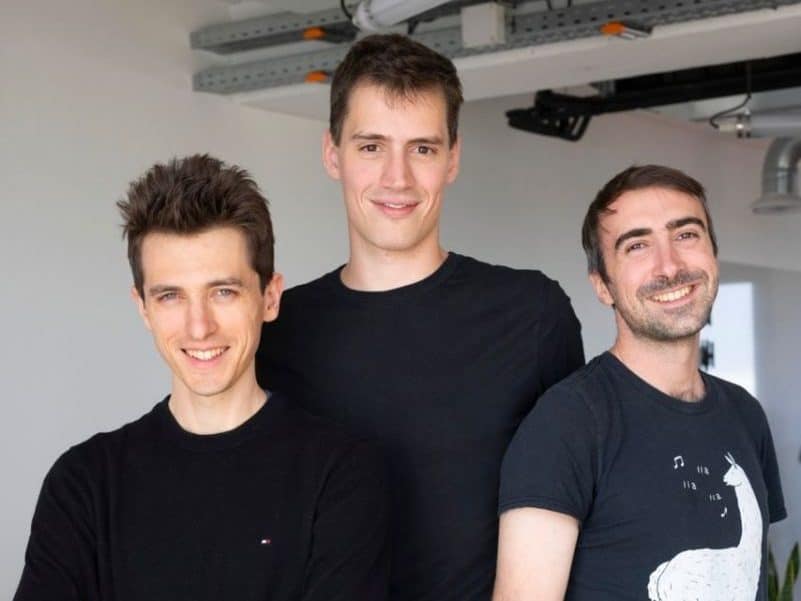Mistral AI: The Rising Star Poses a Serious Threat to OpenAI’s Throne, Surpassing Antropic and Claude


In Brief
Mistral is a French AI startup that has raised €105 million in funding and a valuation of €260 million.
It aims to become the European counterpart to OpenAI and provide competition to the dominant American AI companies.
Mistral AI has the potential to make a substantial impact on the AI landscape, with the backing of influential figures and a significant valuation.
Mistral AI is a highly skilled and well-rounded team with an impressive background in NLP and language models.
In a surprising turn of events, Mistral, a French AI startup, has managed to raise a staggering €105 million in funding just four weeks after its inception. The company, founded by a group of talented individuals who previously worked at Google and Meta, now boasts a valuation of €260 million. This unexpected success has caught the attention of many, but what exactly is Mistral and why is it causing such a buzz?

To put it simply, Mistral aims to become the European counterpart to OpenAI, the renowned AI research organization. With backing from influential players like DeepMind and Meta, Mistral seeks to provide competition to the dominant American AI companies. However, it’s worth noting that Mistral’s main focus lies in investing in research rather than engaging in extensive public relations activities. This may explain the relatively modest website and limited information available on their current products.
One important question that arises is how Mistral intends to obtain the resources necessary to train its models. While specifics are not yet clear, it’s reasonable to assume that the company has devised a plan in this direction. Given the caliber of its founders and the substantial funding it has secured, Mistral is certainly poised to make significant strides in the AI landscape.
The story behind Mistral’s rapid rise is intriguing. Just a few months ago, Guillaume Lample, one of the founders, was still working at Meta GenAI, where he was involved in language model development. During a meeting with colleagues, Lample expressed his intention to leave Meta and embark on his own entrepreneurial journey. True to his word, within a month, Mistral AI was born in the vibrant city of Paris.
The remarkable speed at which Mistral has progressed is evident from its recent fundraising success. In a seed round, the company managed to attract €105 million, resulting in a valuation of €240 million. It’s worth noting that Mistral accomplished this feat with no product in place and a team of only three employees.
Why Is Mistral Commanding Such a High Valuation, And Why Did The Founders Decide to Give Away 44% of The Company in The First Round of Investment?
French startup Mistral AI has made headlines by securing a whopping €105 million in funding just four weeks after its launch. This impressive feat has garnered attention from investors and industry experts alike. The primary investor, Lightspeed Venture Partners, recognized the potential of Mistral AI as a competitor to OpenAI, specializing in large language models and embracing an open-source approach.
To understand the significance of this achievement, it’s important to consider the financial implications for Mistral AI. Developing and training language models like LLM requires substantial computing power, which comes with a hefty price tag, potentially costing the company tens of millions of dollars annually. Additionally, to fulfill their vision of creating the best open-source models, Mistral AI aims to assemble a world-class team of AI specialists, who command salaries that can reach up to a million dollars. Raising €105 million in funding allows Mistral AI to overcome these challenges and kickstart their ambitious project without delay.
It’s worth noting that the seed round investment of €105 million came at a significant cost, with the founders giving away 44% of the company. However, there are a few factors that justify this decision. Firstly, the French government is likely to support and promote this national startup as part of their commitment to nurturing French AI capabilities. Secondly, there is a possibility that Mistral AI could be acquired by a larger player in the future, justifying the rapid inflation of the company’s valuation and providing an early exit opportunity for the founders. This scenario mirrors the DeepMind acquisition by Google in 2015 for $400 million, which presents a similar trajectory.
To gain further insights into the founders’ expertise, screenshots of their Google Scholar profiles have been shared. This highlights their research contributions and establishes their credibility in the field. Mistral AI’s rapid success can be attributed to key trigger words such as being an OpenAI competitor, specializing in large language models, having an open-source approach, and focusing on the corporate market.
Mistral’s potential and the reputation of its founders played a significant role in securing such substantial funding. Investors are likely placing their bets on Mistral’s ability to develop large-scale, open language models that can rival those produced by industry giants like OpenAI. The perceived value lies in Mistral’s ambition to bring about advancements in AI technology and potentially disrupt the market dominated by American companies.
As Mistral continues its journey, it will be interesting to see how the company utilizes its newfound resources and works towards achieving its ambitious goals. With the backing of influential figures and a significant valuation, Mistral has the potential to make a substantial impact on the AI landscape. As observers, we eagerly await further developments and eagerly anticipate what Mistral has in store for the future.
Let’s take a closer look at the individuals behind Mistral AI and what sets them apart.
- Arthur Mensch, the CEO of Mistral AI, brings a wealth of expertise to the table. With a PhD from INRIA and research experience at École normale supérieure in Paris, Mensch spent 2.5 years as a Research Scientist at DeepMind. Notably, he made significant contributions to the development of the renowned Flamingo and Chinchilla models. His specialization lies in language models, making him an invaluable asset to the team.
- Timothée Lacroix, the CTO of Mistral AI, previously worked as a Software Engineer in the research department of Facebook AI Research. Lacroix’s experience at LLaMa, one of the contributors to Mistral AI, makes him a highly skilled and well-rounded member of the team. His engineering prowess makes him a natural fit for the role of CTO.
- Guillaume Lample, the Chief Research Officer (CRO) of Mistral AI, boasts an impressive background in NLP and language models. After completing a PhD at Facebook AI Research, Lample secured a full-time position as a Research Scientist at FAIR and later at GenAI. Known for his remarkable productivity, Lample has made significant contributions to the field and amassed thousands of citations. His scientific expertise and innovative mindset make him a valuable addition to the team.
The caliber of Mistral AI’s founders has not gone unnoticed. The investment fund Lightspeed, which invested in Mistral AI, lauds the team’s exceptional talent and deep expertise in language models and their optimizations.
How Mistral AI Outshines OpenAI with Open-Source Approach
What sets Mistral AI apart from its competitors is its commitment to open-source principles. While other companies like OpenAI have faced criticism for not aligning with their namesake, Mistral AI emphasizes that open-source is a core part of its DNA. The company plans to make all its developments, including data and model weights, publicly available. This commitment to transparency and accessibility resonates with Stability AI, another player in the field. Additionally, Mistral AI aims to build its models solely on public datasets to mitigate legal issues, a strategy reminiscent of Stability AI’s approach. Furthermore, users will have the opportunity to contribute by adding their own datasets, similar to the Open Assistant project.
Interestingly, Mistral AI has taken a different approach when it comes to product releases. Unlike OpenAI’s focus on end-user products like ChatGPT, Mistral AI intends to target enterprise customers. With their open-source model, this strategic decision makes sense, as the open-source community can take care of products for everyday users, similar to what transpired with Stable Diffusion.
Their dedication to open-source principles and their emphasis on enterprise customers positions them uniquely in the AI landscape. As the open-source community rallies behind their efforts, Mistral AI has the potential to make a lasting impact, just like Stability AI.
It’s important to acknowledge the challenges faced by AI regulation. Google’s Bard chatbot has been delayed in its European launch due to privacy concerns raised by the European Data Protection Commission. The commission claims that Google has not provided sufficient information regarding how Bard protects Europeans’ privacy.
Similarly, officials today continue to scrutinize and regulate various aspects of innovation. However, the impressive progress made by startups like Mistral AI demonstrates that determined entrepreneurs can still navigate these challenges and secure significant funding to advance their ideas. Mistral AI’s success serves as an inspiration and a reminder of the potential that lies within the world of startups and technological innovation. The support from investors and the commitment to open-source principles positions Mistral AI for a bright future, while the regulatory hurdles faced by companies like Google underscore the importance of addressing privacy concerns.
Read more about AI:
Disclaimer
In line with the Trust Project guidelines, please note that the information provided on this page is not intended to be and should not be interpreted as legal, tax, investment, financial, or any other form of advice. It is important to only invest what you can afford to lose and to seek independent financial advice if you have any doubts. For further information, we suggest referring to the terms and conditions as well as the help and support pages provided by the issuer or advertiser. MetaversePost is committed to accurate, unbiased reporting, but market conditions are subject to change without notice.
About The Author
Damir is the team leader, product manager, and editor at Metaverse Post, covering topics such as AI/ML, AGI, LLMs, Metaverse, and Web3-related fields. His articles attract a massive audience of over a million users every month. He appears to be an expert with 10 years of experience in SEO and digital marketing. Damir has been mentioned in Mashable, Wired, Cointelegraph, The New Yorker, Inside.com, Entrepreneur, BeInCrypto, and other publications. He travels between the UAE, Turkey, Russia, and the CIS as a digital nomad. Damir earned a bachelor's degree in physics, which he believes has given him the critical thinking skills needed to be successful in the ever-changing landscape of the internet.
More articles

Damir is the team leader, product manager, and editor at Metaverse Post, covering topics such as AI/ML, AGI, LLMs, Metaverse, and Web3-related fields. His articles attract a massive audience of over a million users every month. He appears to be an expert with 10 years of experience in SEO and digital marketing. Damir has been mentioned in Mashable, Wired, Cointelegraph, The New Yorker, Inside.com, Entrepreneur, BeInCrypto, and other publications. He travels between the UAE, Turkey, Russia, and the CIS as a digital nomad. Damir earned a bachelor's degree in physics, which he believes has given him the critical thinking skills needed to be successful in the ever-changing landscape of the internet.



















































